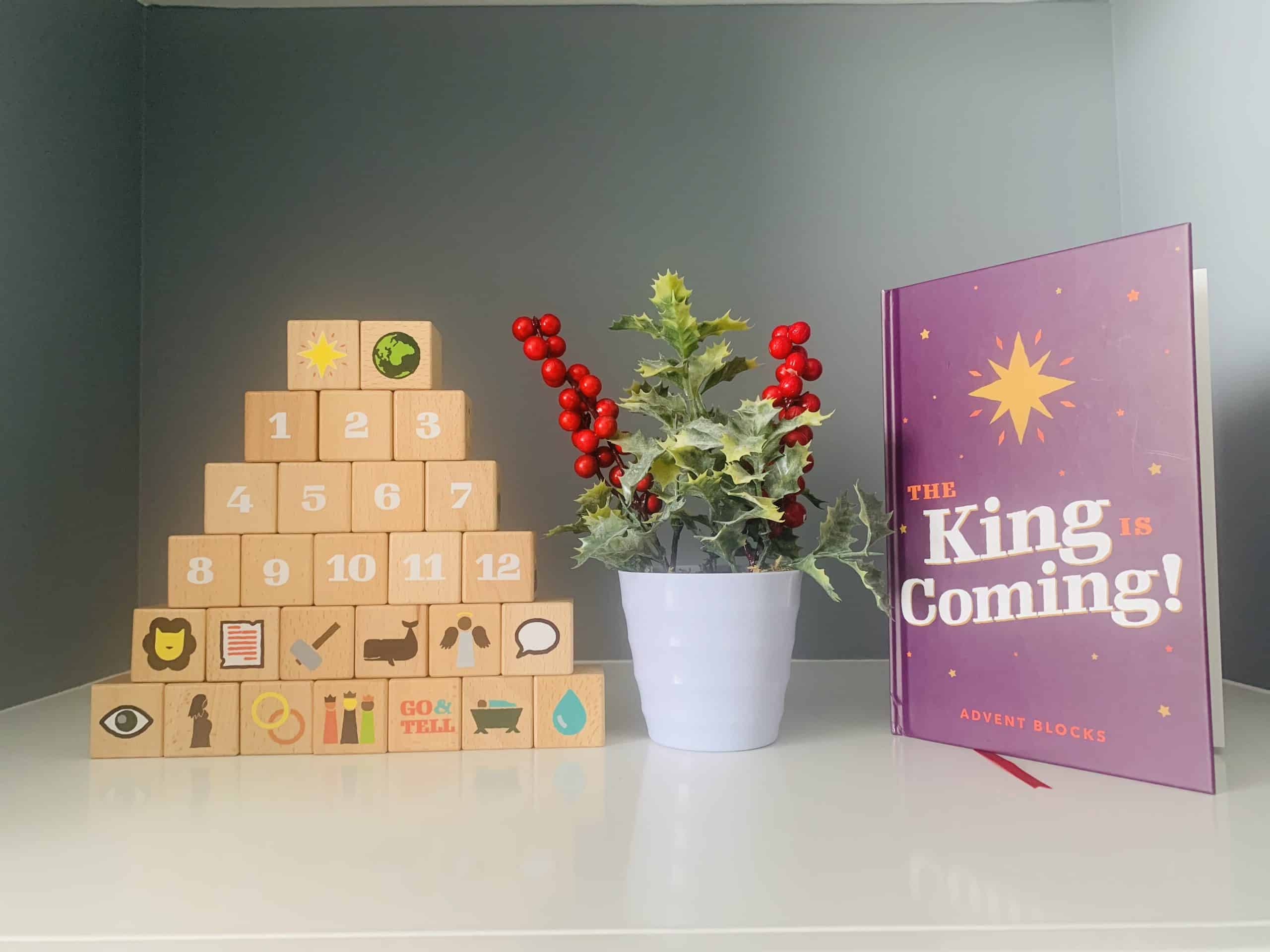How Many Books Are In the Bible?

Have you ever wondered just how many books are in the Bible and why there is a protestant bible and a catholic Bible? I did too! There really is something about the Bible that makes it one of the bestselling non-fiction books in the history of humanity?
Many experts have researched the background and validity of these sacred writings. But do we need to be a scholar to understand something as simple as how many books are there in the Bible?
We do not, but when we learn more about the books in the Bible and how the canon of scripture came to be with its different authors, then we are able to know more about our faith as well as defend what we believe to those who may question it.
In this blog post we will explore how many books are in the Bible, dive into the differences amongst various Bibles and explore how the Bible is organized by genre.
As we journey through the pages of the Bible, we’ll discover that it’s not just a jumble of random texts. Oh no! This extraordinary book is carefully organized into various genres, each serving its unique purpose and revealing essential truths about life and human nature. Let’s dive into todays post!

This post may contain affiliate links. You can read my full affiliate disclosure here.
How Many Books Are in the Bible and How Did They Get There?
How many books are in the holy Bible? There are a total of 66 books in the Bible. The 39 books of the Old Testament and the New Testament is the last 27 books of the Bible. The term canonization is the process by which the books were or were not chosen.
As 2 Timothy 3:16 tells us that all Scripture is God-breathed, we need to realize that even though the books were chosen by humans, it is God’s sovereignty that allowed these books to become what we know of as the Bible.
Maybe you have wondered how the books of the Bible were chosen? It was not a single council or church that determined which books would be included in the Bible, but it was a collective effort of different scholars, churches, and councils over time such as the council of Trent. The original Hebrew Bible used by the Jewish people is the Old Testament which was written between 1200-165 BC.
While the Old Testament was easily accepted as Scripture, the New Testament books went through a more tedious process as these books were written to more different people groups than the Hebrews and Jews.
For the Old Testament books, there were five criteria that it needed to follow to be deemed authoritative.
It had to be written by a prophet of God and the authority of the prophet had to be shown by an act of God.
The writings had to align with the other writings from God’s prophets and had to display the power to transform the reader. And lastly, the book had to be accepted by God’s people as true.
For the New Testament books, there were four criteria that determined if a book was to be included in the New Testament.
It needed to be written by an apostle or someone close to an apostle.
The book also had to align with both the Old Testament writings and the teachings of the Apostles. To be considered as having divine authority and inspiration, the books had to be gaining popularity amongst the Christian community. And finally, the book had to contain high moral and spiritual values that showed the work of the Holy Spirit.
During the second century, most churches and early church fathers such as Polycarp and Ignatius already taught from and acknowledged the books of the New Testament. Although, seven books of the New Testament took more time and debate to be admitted as scripture.
These books were Hebrews, James, 2 Peter, 2 and 3 John, Jude, and Revelation. It was not until around the 5th century that there was a general agreement on which writings would be considered scripture. In general, the books that were chosen to be in the Bible were all self-authenticating in one way or another.
What is the Difference Between the Protestant Bible and the Catholic Bible?
The main difference between the Protestant Bible and the Catholic Bible is the total number of books each one is comprised of. The Roman Catholic Church Bible has seven more books than the Protestant Bible, giving it a total of 46 books. These additional books are called the apocryphal books.
The New Testament books are the same but the Old Testament books differ. The additional books of the Catholic Bible include Tobit, Judith, Wisdom of Solomon, Ecclesiasticus, Baruch, and First and Second Maccabees. There is also additional text to the books of Daniel and Esther.
The difference in the number of books that comprise each one is not due to one group adding or deleting from the other, but it is rather because of the different standards that each group used to determine what should be included in their Bible. The books that were not included in the Hebrew Bible, Protestants believed should not be included in the Christian one either.
What is the Difference Between the Protestant Bible and the Hebrew Bible?
Here is a fun fact: the Hebrew Bible, also known as the Tanakh, and the Protestant Bible are read by separate groups of people. The Hebrew Bible is mainly the Jewish people’s holy text and the Protestant Bible is the book used by Christians. While the Hebrew Bible has 24 volumes, the Protestant Bible has 39 books in the Old Testament, it is a collection of books that form the hebrew scriptures.
And although the Hebrew Bible has the writings of the twelve minor prophets, these books are compiled to form one single book. The Protestant Bible separates these minor prophets into individual books.
Another difference is how many sections each Bible has. The three main sections of the Hebrew Bible are the Torah, Prophets, and Writings. The Protestant Bible has four sections that are categorized as the Pentateuch, Historical Books, Wisdom Books, and Prophetic Books.
How The Bible Is Organized?
The 66 books of the Bible are split between the Old Testament, the first 39 books, and the New Testament Canon, the last 27 books. But even between the Old and New Testaments, there are different categories that we can classify the books into.
There are nine categories that a book can fall under: the Pentateuch, Historical, Poetry and Wisdom, Major Prophets, Minor Prophets, the Gospels, Church History, Epistles, or Prophecy. Let us take a look at each genre and which books are included in each.
The Pentateuch is the first five books of the Bible and the Old Testament. These Old Testament books of the Bible are Genesis, Exodus, Leviticus, Numbers, and Deuteronomy. They cover Creation to the 40-year wandering period of God’s chosen people and are all authored by Moses.
There are twelve Historical books in the Protestant Bible. They are Joshua, Judges, Ruth, 1 Samuel, 2 Samuel, 1 Kings, 2 Kings, 1 Chronicles, 2 Chronicles, Ezra, Nehemiah, and Esther. The authors of these books vary, with some authors being unknown. These books begin with Joshua leading the Israelites into the chosen land and covers the stories of God’s faithfulness in saving and restoring His chosen people.
The five Poetry and Wisdom books are Job, Psalms, Proverbs, Ecclesiastes, and Song of Solomon. While Job is the author of the book with the same name, Solomon, the wisest man, is mainly the author of the other four. These books teach us many practical things about life, suffering, relationships, and who God is.
There are five books that fall under the Major Prophets category: Isaiah, Jeremiah, Lamentations, Ezekiel, and Daniel. These books are all authored by the people the book is named after, with Lamentations written by Jeremiah.
They are not called major prophets because the prophets were more important than the minor ones, but the reason is that these books are longer in length. The Major Prophets follow the Jewish people as they continue to disobey God but yet He continues to display His sovereignty over their lives.
The shorter prophetic books, the Minor Prophets, comprise of twelve different books and authors. These books include Hosea, Joel, Amos, Obadiah, Jonah, Micah, Nahum, Habakkuk, Zephaniah, Haggai, Zechariah, and Malachi. These books speak a lot about God’s judgment and the coming of a Messiah, Jesus.
The Gospels make up the first four books of the New Testament and talks about the birth of Jesus the son of God and his life and ministry. These include: Matthew, Mark, Luke, and John. The word Gospel means “Good News” and these books highlight the message of Christ and the Kingdom of God. Even though they share many similar stories, they are written from different perspectives to different audiences with a different emphasis on who Jesus is.
The only Church History book is Acts which was written by Luke. It tells of how the early Christian church was formed after Jesus Christ ascended to Heaven and sent the Holy Spirit. Through the power of the Spirit, the apostles continued to spread the Gospel and perform miracles.
The Epistles make up the majority of the New Testament’s 27 books as there are 21 of them. Most of which are believed to have been written by the apostle Paul. The Epistles are: Romans, 1 Corinthians, 2 Corinthians, Galatians, Ephesians, Philippians, Colossians, 1 Thessalonians, 2 Thessalonians, 1 Timothy, 2 Timothy, Titus, Philemon, Hebrews, James, 1 Peter, 2 Peter, 1 John, 2 John, 3 John, and Jude.
The word Epistle means “letter” and was written by the apostles to either a church or an individual. These letters encouraged and taught the reader how to be a follower of Christ in practical ways.
The last book of the Bible, Revelation, is the only book of Prophecy. The word prophecy simply means a “message from God” and Revelation is the vision given to John about the end times of final judgment. It is also the only book that declares the reader and those who listen to its message are blessed.
How Many Books Are There in the Bible?
Understanding how many books are in the Bible gives us the confidence that what we are reading and applying in our lives really is the inerrant Word of God and a divine book. Because the Holy Spirit illuminates the Word for us, we are able to understand who God is and the deeper spiritual implications of these writings.
I hope this gives you the assurance and passion to read each of the 66 unique books of the Bible as God’s words breathed for you and the early Christians alike.
Additional Articles You May Like:
The 66 Books of the Bible Overview






